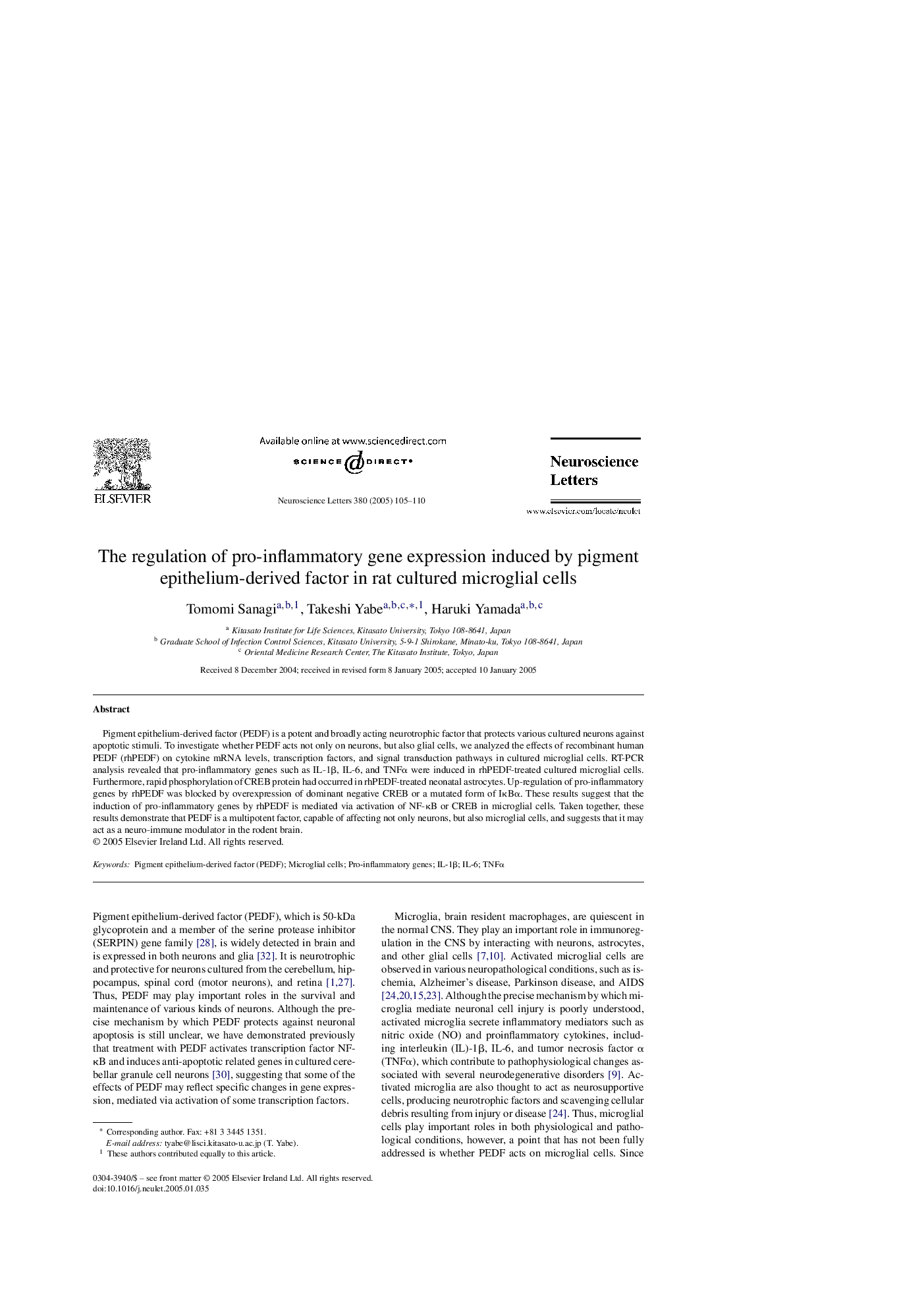| Article ID | Journal | Published Year | Pages | File Type |
|---|---|---|---|---|
| 9429439 | Neuroscience Letters | 2005 | 6 Pages |
Abstract
Pigment epithelium-derived factor (PEDF) is a potent and broadly acting neurotrophic factor that protects various cultured neurons against apoptotic stimuli. To investigate whether PEDF acts not only on neurons, but also glial cells, we analyzed the effects of recombinant human PEDF (rhPEDF) on cytokine mRNA levels, transcription factors, and signal transduction pathways in cultured microglial cells. RT-PCR analysis revealed that pro-inflammatory genes such as IL-1β, IL-6, and TNFα were induced in rhPEDF-treated cultured microglial cells. Furthermore, rapid phosphorylation of CREB protein had occurred in rhPEDF-treated neonatal astrocytes. Up-regulation of pro-inflammatory genes by rhPEDF was blocked by overexpression of dominant negative CREB or a mutated form of IκBα. These results suggest that the induction of pro-inflammatory genes by rhPEDF is mediated via activation of NF-κB or CREB in microglial cells. Taken together, these results demonstrate that PEDF is a multipotent factor, capable of affecting not only neurons, but also microglial cells, and suggests that it may act as a neuro-immune modulator in the rodent brain.
Keywords
Related Topics
Life Sciences
Neuroscience
Neuroscience (General)
Authors
Tomomi Sanagi, Takeshi Yabe, Haruki Yamada,
